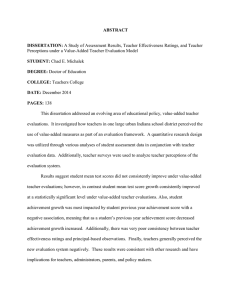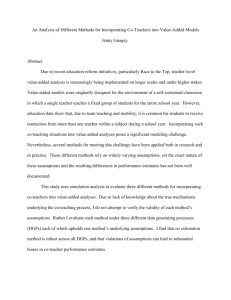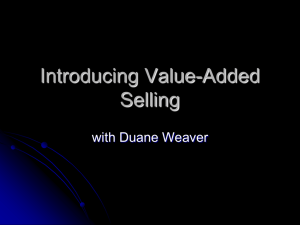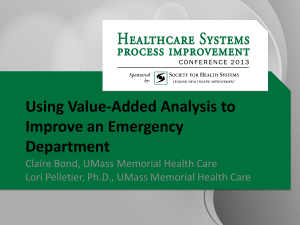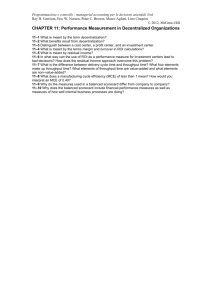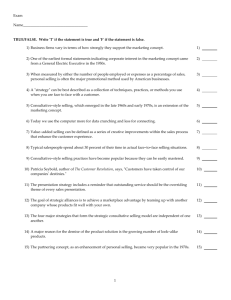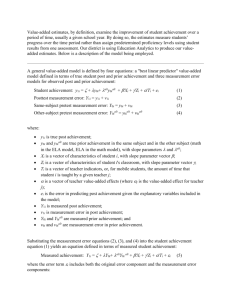LEAN Continuous Improvement Value
advertisement
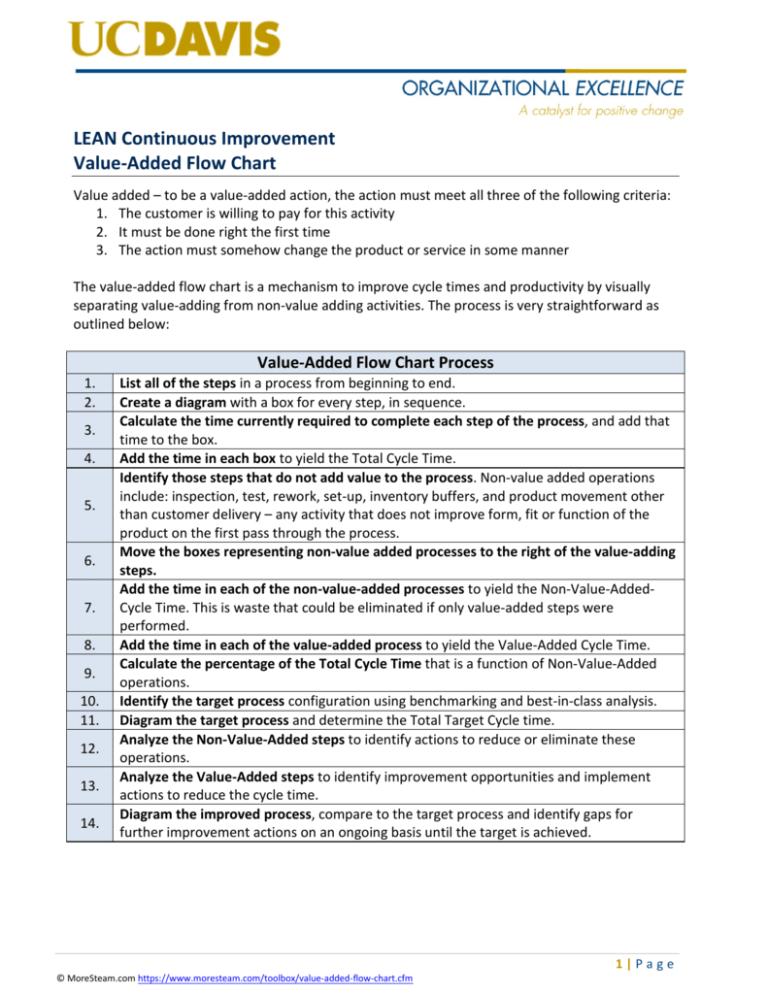
LEAN Continuous Improvement Value-Added Flow Chart Value added – to be a value-added action, the action must meet all three of the following criteria: 1. The customer is willing to pay for this activity 2. It must be done right the first time 3. The action must somehow change the product or service in some manner The value-added flow chart is a mechanism to improve cycle times and productivity by visually separating value-adding from non-value adding activities. The process is very straightforward as outlined below: 1. 2. 3. 4. 5. 6. 7. 8. 9. 10. 11. 12. 13. 14. Value-Added Flow Chart Process List all of the steps in a process from beginning to end. Create a diagram with a box for every step, in sequence. Calculate the time currently required to complete each step of the process, and add that time to the box. Add the time in each box to yield the Total Cycle Time. Identify those steps that do not add value to the process. Non-value added operations include: inspection, test, rework, set-up, inventory buffers, and product movement other than customer delivery – any activity that does not improve form, fit or function of the product on the first pass through the process. Move the boxes representing non-value added processes to the right of the value-adding steps. Add the time in each of the non-value-added processes to yield the Non-Value-AddedCycle Time. This is waste that could be eliminated if only value-added steps were performed. Add the time in each of the value-added process to yield the Value-Added Cycle Time. Calculate the percentage of the Total Cycle Time that is a function of Non-Value-Added operations. Identify the target process configuration using benchmarking and best-in-class analysis. Diagram the target process and determine the Total Target Cycle time. Analyze the Non-Value-Added steps to identify actions to reduce or eliminate these operations. Analyze the Value-Added steps to identify improvement opportunities and implement actions to reduce the cycle time. Diagram the improved process, compare to the target process and identify gaps for further improvement actions on an ongoing basis until the target is achieved. © MoreSteam.com https://www.moresteam.com/toolbox/value-added-flow-chart.cfm 1|Page LEAN Continuous Improvement Value-Added Flow Chart The basic format of a Value-Added Flow Chart is shown below using the example of making a bank deposit. As illustrated above, less than 10% of the total processing time is used to actually create value. As you make improvements to the process by eliminating non-value-added operations, use trend charts to track and communicate progress. © MoreSteam.com https://www.moresteam.com/toolbox/value-added-flow-chart.cfm 2|Page

